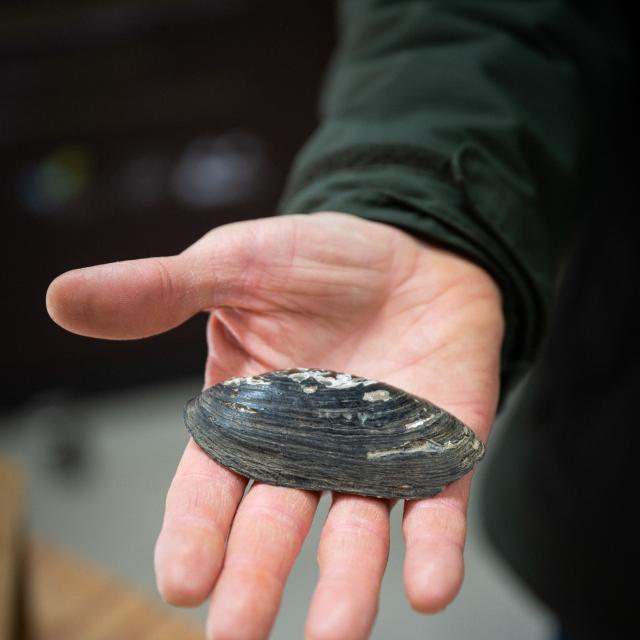
Once widespread throughout the Ösling, the freshwater pearl mussel is now considered extinct in Luxembourg. The reintroduction of captive-bred species can only succeed if the condition of the Our improves. Achieving clean waters at national level will take at least two more decades.
Frankie Thielen grabs a freshwater pearl mussel from an aquarium and places it on a plastic lid. The three-year-old animal measures just half a centimetre. Could such a specimen survive in the upper reaches of the Our in a few years and give birth to its own offspring?
This question is on the biologist's mind. In the cellar of the Kalborn mill in the far north of the country, he lifts the lid of a large container, scaring off for a moment the small shoal of brown trout circling inside. If you were to examine these brown trout, you would find a few hundred larvae of freshwater pearl mussels on their gills. Every year in August, Belgian colleagues go into the rivers of the neighbouring country and look for old animals of the species. They open them carefully with a pair of forceps. If the gills are swollen, this is an indication that the animal is in the process of forming larvae. The pregnant specimens are collected and placed in an aquarium until they release their larvae.
Thielen knows a lot about fish and their parasites. After all, it was the subject of his doctoral thesis. Chance must have had a hand in it when he started working for the natur&ëmwelt foundation in 2007. His first assignment was to set up a breeding station for freshwater mussels that spend part of their lives as parasites on fish.
At the breeding station, it works like this: Brown trout are brought into contact with the larvae for about 45 minutes in a tub with a low water level. "The larvae are programmed to bite down on the gills of the fish as they exhale." A few months later, spring begins for the brown trout. In January, the fish are transferred to another tank where the water temperature gradually rises to 16 to 17 degrees Celsius. The larvae, which transform into young mussels by means of metamorphosis, then settle from their host and are caught in a fine sieve.
You want more? Get access now.
-
One-year subscription€185.00/year
-
Monthly subscription€18.50/month
-
Zukunftsabo for subscribers under the age of 26€120.00/year
Already have an account?
Log in


